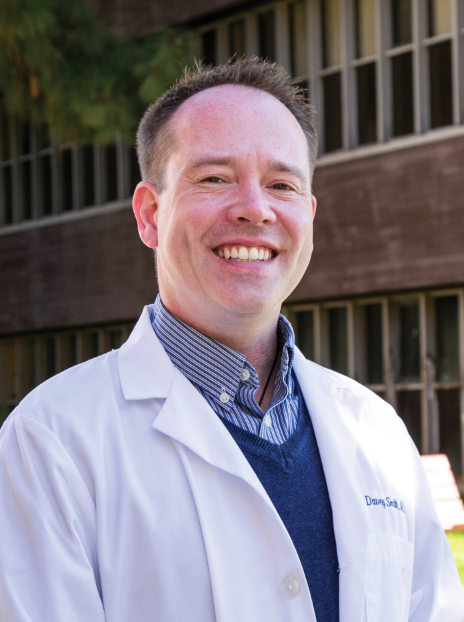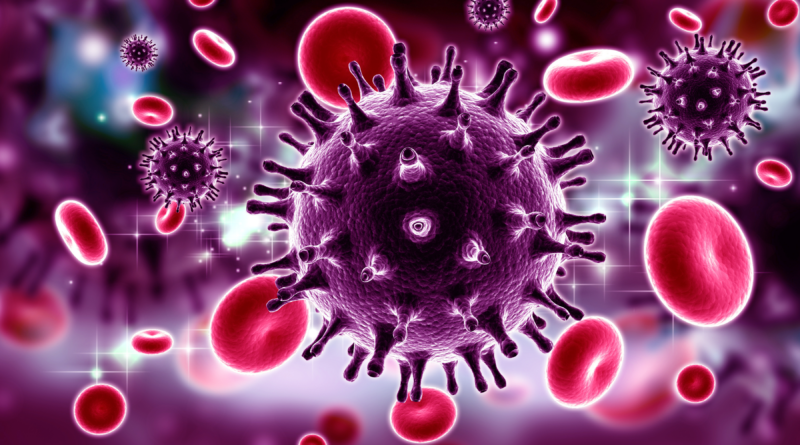HIV Cure Study at UCSD A Conversation with Dr. Davey Smith, MD
By Cesar A Reyes
Human immunodeficiency virus type 1 (HIV-1) causes a persistent infection that ultimately leads to acquired immunodeficiency syndrome (AIDS). Treatment of HIV-1 infection with combination anti-retroviral therapy (ART) suppresses HIV-1 replication to undetectable viral levels and saves lives. Nevertheless, ART cannot eradicate latent cellular reservoirs of the virus, and HIV-1 infection remains a life-long battle. Adoptive cellular immunotherapy using chimeric antigen receptor (CAR) engineered T cells directed against HIV-1 envelope subunit protein gp120 (HIVCAR T cells) may provide a safe and effective way to eliminate HIV-infected cells.

However, the number of HIV-infected cells is low in participants under ART, and CAR T cells disappear if they are not stimulated by their target antigens. Interestingly, about 95% of HIV-1-infected individuals are CMV-seropositive and CMV-specific T cells have been shown to persist. To overcome the CAR T cells low persistence issue, we propose to make HIV-CAR T cells using autologous cytomegalovirus (CMV)-specific T cells, which can be stimulated by endogenous CMV in vivo. The overall hypothesis of this first-in-human Phase 1, open-label, single-arm study is that endogenous immune signals to CMV-specific T cells can maintain the presence of autologous bispecific CMV/HIV-CAR T cells in healthy people living with HIV-1 (PLWH), and achieve long-term remission in the presence of ART.
UCSD’s study represents one of the first attempts at applying groundbreaking technology to HIV treatment.

Please Introduce yourself.
Hello, I’m Dr. Davey Smith, a professor of medicine at UC San Diego and the Co-Director of the San Diego Center for AIDS Research. I have been deeply involved in HIV research for many years, focusing on developing innovative strategies to combat and potentially cure this disease.
Can you tell us about the pilot study?
Our pilot study is exploring the use of CAR-T cells as a potential cure for HIV. CAR-T cell therapy, which has been successful in treating certain cancers, like lymphoma. involves modifying a patient’s T cells to better recognize and attack HIV-infected cells. This study represents one of the first attempts to apply this groundbreaking technology to HIV treatment.
What is the study hoping to accomplish?
The primary goal of the study is to assess the safety and feasibility of using CAR-T cells in persons with HIV. Additionally, we aim to evaluate the effectiveness of these engineered cells in reducing or eliminating the viral reservoir within the body. Essentially, we are testing whether CAR-T cells can target and destroy the cells that harbor HIV, which is a critical step toward finding a functional cure.
Can you talk about the importance of the study and the people participating?
This study is incredibly important as it represents a novel approach to potentially curing HIV. The participants in this study are at the forefront of medical research, bravely contributing to a groundbreaking effort that could change the landscape of HIV cure efforts. Their involvement not only advances scientific knowledge but also holds the promise of benefiting millions of people living with HIV worldwide.
What are the requirements to enter the study?
Participants must meet several criteria to be eligible for the study. They need to be adults living with HIV who are on stable antiretroviral therapy with an undetectable viral load. Additionally, they should have a sufficient number of CD4 T cells and be in generally good health. There are specific medical and laboratory evaluations that potential participants must undergo to ensure their safety and suitability for the study.
How can people get more information?
For more information about the study, interested individuals can contact our research team directly. We have a dedicated team ready to provide details, answer questions, and guide potential participants through the eligibility assessment process. Additionally, information is available on the UC San Diego AntiViral Research Center (AVRC) website at http://avrc.ucsd.edu and Marvin Hanashiro at mhanashiro@health.ucsd.edu.
Thank you for your interest in our study. We are hopeful that this research will pave the way for a cure for HIV.

